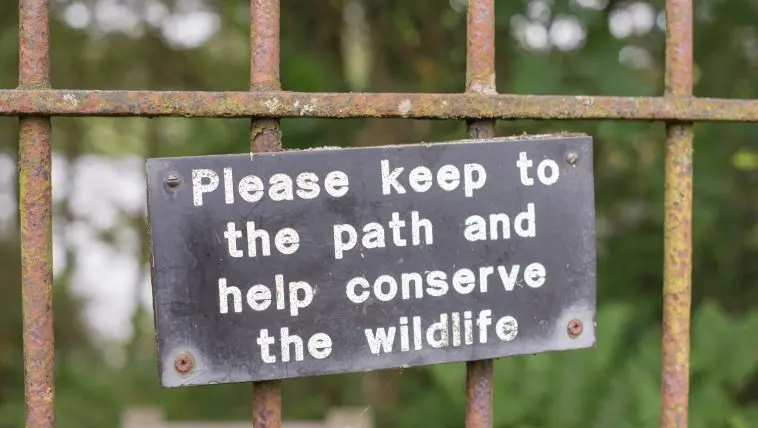[Originally published as Conservation and the Bible?]
Conservation is a topic that does not often come up in conservative evangelical circles, except to be mocked as another ridiculous, radical, leftist idea that has permeated the culture. However, there are some Biblical principles that are applicable to the conversation. We discussed them a few weeks ago on the podcast but I want to come back to the issue in print and build on it a little bit.
Because conservation, it turns out, is biblical.
Before going any further, let’s lay some biblical groundwork. The Bible is clear that the earth is made for man. Genesis 1:26 and Genesis 1:28 both refer to man having dominion over the entire creation. God goes through a list of everything on earth He made and places it under man’s dominion.
Scholars have debated nearly endlessly over what the dominion mandate’s extent is, but regardless of the nuance, the fact remains, God gave man dominion over this earth. That means that man can use the earth for what purposes he chooses. That would include its resources, its animals, its plants, and its land for man’s benefit.
The fact that man can use the earth as he pleases infuriates the conservationist in the secular realm. They want to preserve the earth and not use up our resources. This is compounded by the climate change con artists proclaiming that the world is ending soon unless we follow whatever leftist policy dream they want.
The environmentalists think that man is the problem. Many of them want to reduce human population, sometimes even down to zero. They think that doing so will help “save the planet.” They have no concept of the dominion mandate. Thus, they are desperately trying to save a planet from man, not realizing that the earth was made for man.
However, just because the earth was made for man, does not mean man has the right to be wasteful or spendthrift with the resources God has given us.
Throughout the New Testament, we see the principle of good stewardship taught. Man may have dominion over the earth, but he is not given permission to be wasteful. God has entrusted him with stewardship over the earth. This means that man should not squander the things God has placed on earth.
With this background in place, how should Christians view conservation?
The answer depends on the type of conservation activity intended. Conservation should always balance two things:
- the benefit of man,
- and the conservation of earth’s resources.
For example, when some endangered species is in the path of a building project, which happens frequently, a decision must be made.
How valuable is the project to humanity?
If it can be easily relocated, the answer is pretty obvious.
Suppose however it cannot.
Then the question arises, should we eliminate the habitat of endangered species X, making it more likely to go extinct, or should we preserve the habitat?
In this case, it becomes a balance of how much habitat species X has, and how valuable the project is to humanity.
However, when there is a conflict between human safety and conservation, human safety should win every single time. Humans have dominion over the earth, not the other way around. Therefore human safety should always be the priority. If an animal attacks a human, the animal can be killed without any concerns from a biblical perspective.
The same perspective likely applies to property, such as livestock. God has commanded man to work to provide for himself and his family. In obeying this command, defense of livestock is expected, just as David slew the bear and the lion that attacked his father’s sheep.
This does not mean, however, that any animal with the potential to harm a person or their livelihood should be killed. Many predators bring substantial benefits to humans in direct or indirect ways. It is irresponsible and wasteful to simply kill them for existing. This does not represent good stewardship as defined in Scripture.
In writing this article, I have deliberately taken a middle course because I think such a middle course is biblically valid.
There are valid reasons to conserve the natural world.
It represents good stewardship of the creation and provides natural beauty for future generations.
However, there are also valid reasons to use elements of the natural world. Human needs and safety must take precedence over conservation. The application of this principle will differ in every situation but it makes a good starting point for thinking about conservation from a Biblical worldview.







